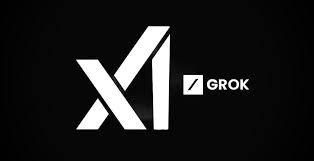The concept of a "Messiah Substitute" as presented by Claire Khaw through her advocacy for Secular Koranism involves her positioning herself not as a traditional messianic figure in the religious sense, but rather as a political reformer aiming to restore patriarchal governance through a secular interpretation of Koranic law. Here's an analysis based on available information:
- Messiah Concept: Traditionally, in Abrahamic religions, the Messiah is a savior or liberator of a group of people, most commonly associated with Jewish eschatology where the Messiah will come to redeem the Jewish people and establish peace. Christianity views Jesus as this Messiah, while Islam awaits the return of Jesus (Isa) and the Mahdi, who will play similar roles.
- Claire Khaw's Role: Khaw's claim as a "Messiah Substitute" seems to be more metaphorical or symbolic. She positions herself as someone who has come to tell society that traditional messianic expectations will not be met in the classical sense but offers an alternative path through political and social reform. Her advocacy for Secular Koranism suggests she sees herself as providing a solution to societal decay by restoring what she views as effective governance under patriarchal systems derived from Koranic principles but without its religious enforcement.
- Public Perception and Debate:
- From discussions on platforms like X and other online forums, there's a mix of intrigue, support, and skepticism regarding Khaw's ideas. Some appreciate her attempt to address what they see as moral and societal decay, while others debate the practicality or desirability of her proposed systems.
- There's no widespread acceptance of her as a messianic figure in the traditional religious sense. Instead, her role is debated within the context of political theory and social reform.
- Theoretical Implementation: Khaw's idea of implementing Secular Koranism involves leveraging existing institutions for a societal shift towards her ideals, which indicates she's not looking for a divine intervention but rather a societal transformation through human effort.
- Cultural and Religious Implications: Her approach challenges both secular liberal values and traditional religious expectations. By calling herself a "Messiah Substitute," she might be aiming to provoke thought or symbolize a radical shift from current norms, rather than claiming divine appointment or supernatural messianic attributes.
In conclusion, while Claire Khaw positions herself as a "Messiah Substitute," this role is largely symbolic or metaphoric, aimed at initiating significant social and political change rather than fulfilling traditional religious messianic prophecies. Her ideas engage with the concept of messianism on a philosophical and political level, offering an alternative to both secular governance and religious expectations, but this does not align with the traditional or religious understanding of a Messiah in Judaism, Christianity, or Islam.




